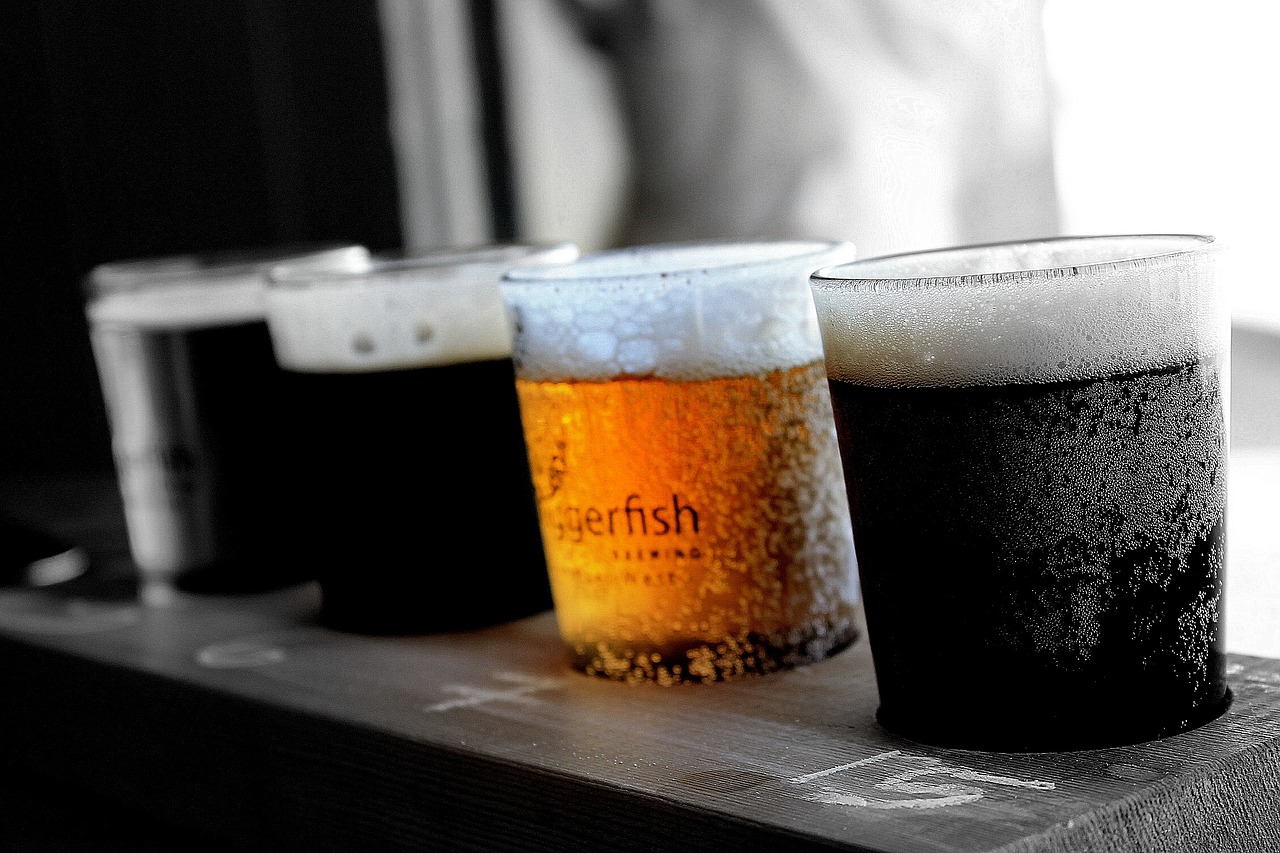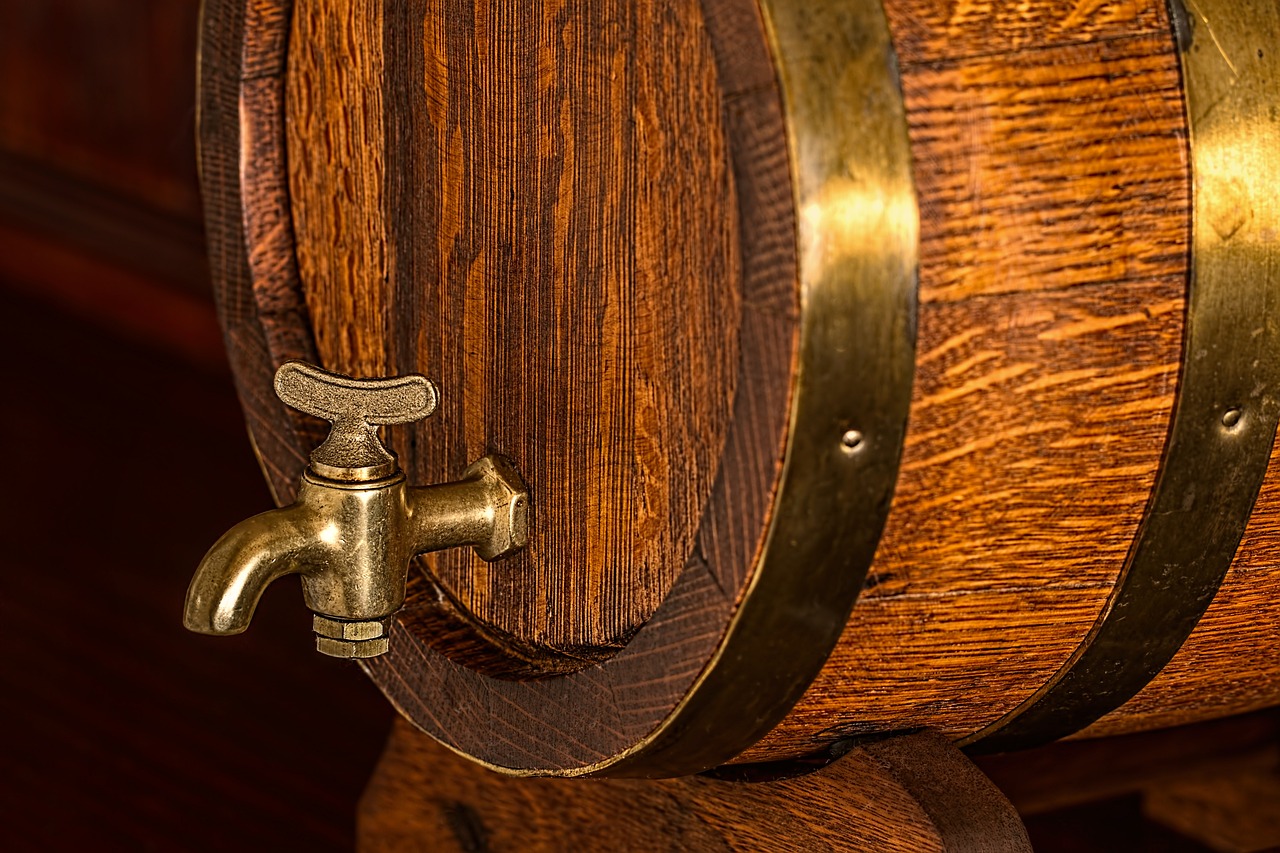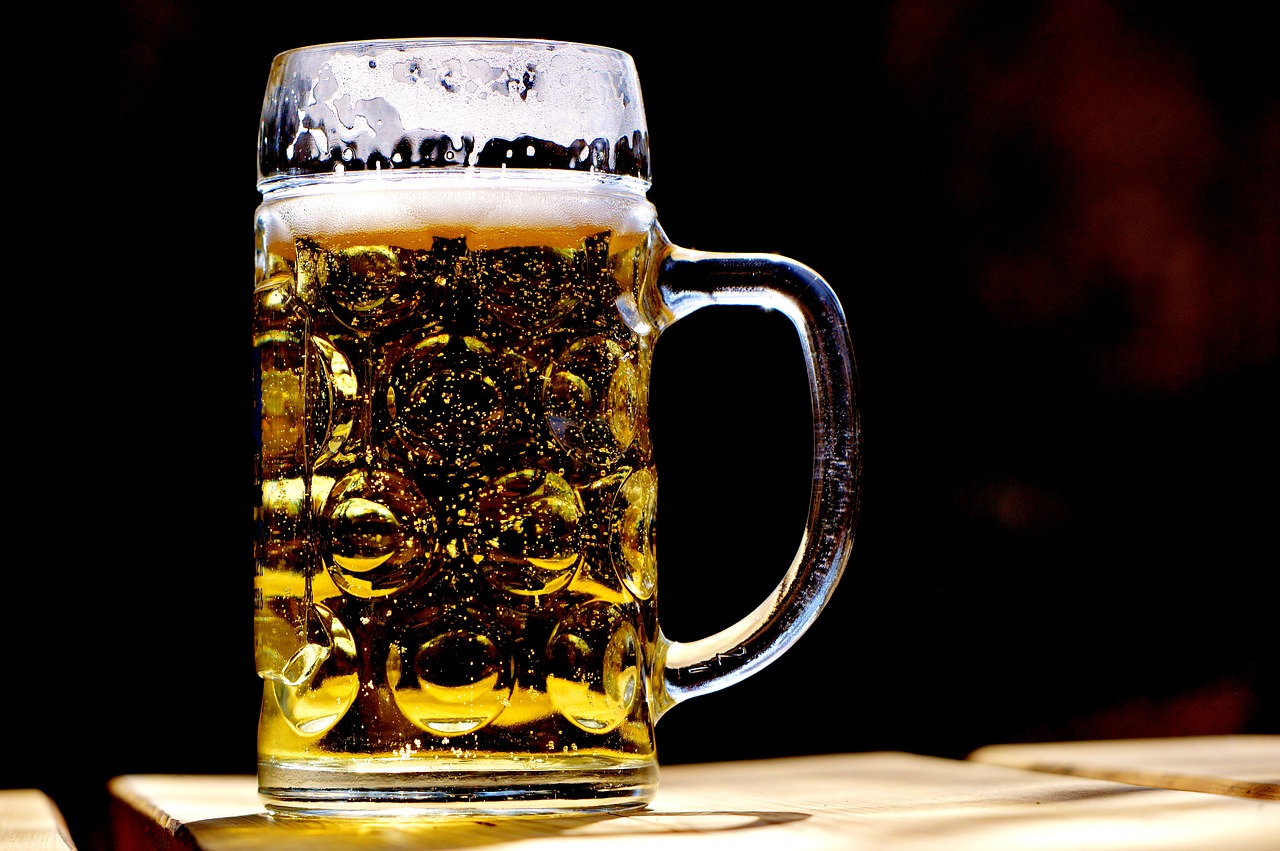Introduction to Freezing Beer
Can Beer Freeze?
Beer, like most liquids, has a freezing point. The freezing point of beer is typically around 27 degrees Fahrenheit (-2.8 degrees Celsius), although it can vary depending on the type and alcohol content of the beer. Freezing a beer and allowing it to thaw can have an impact on its taste and texture.
Importance of Understanding the Effects of Freezing Beer
Understanding the freezing point of beer is crucial for beer enthusiasts and those involved in its transportation and storage. Here are some reasons why:
- Maintaining Optimal Taste: Freezing and thawing a beer can alter its taste and texture, affecting the overall drinking experience. By knowing the freezing point of beer, you can prevent unwanted changes in flavor and preserve the quality of your favorite brew.
- Preventing Damage during Transportation: If you need to transport beer in cold weather, knowing the freezing point can help you avoid surprises. Freezing beer can cause the expansion of liquid, potentially leading to broken bottles or cans. This knowledge allows you to take necessary precautions and ensure the beer arrives in perfect condition.
- Proper Storage Conditions: Whether you’re a beer collector or simply stocking up for a special occasion, understanding the freezing point is essential for maintaining the quality of your beer over time. Storing beer at temperatures below its freezing point can negatively impact its taste and texture.
- Avoiding Wasted Inventory: For breweries, understanding the freezing point of their beer is crucial to avoid waste. Freezing can cause beer to lose its carbonation or change its flavor profile, rendering it unsellable. By having knowledge of the freezing point, breweries can take appropriate measures to safeguard their product.
In conclusion, understanding the freezing point of beer is important for both consumers and professionals. It allows for a better appreciation of beer’s taste, prevents damage during transportation, ensures proper storage conditions, and prevents wasted inventory. So, the next time you enjoy a cold beer, remember the science behind its freezing point.

Factors Affecting Beer Freezing
Temperature and Freezing Point of Beer
The freezing point of beer can vary depending on several factors, including:
- Alcohol Content: Beers with higher alcohol content have a lower freezing point. This is because alcohol has a lower freezing point than water. As the alcohol content increases, the freezing point of the beer decreases. However, even high-alcohol beers can still freeze if subjected to extremely low temperatures.
- Ingredients: The ingredients used in the brewing process can also affect the freezing point of beer. For example, beers with higher sugar content may have a lower freezing point due to the presence of dissolved solids.
- Carbonation: Carbonation can affect the freezing point of beer. Beers with higher carbonation levels may have a slightly lower freezing point, as the dissolved carbon dioxide can lower the freezing point of the liquid.
- Temperature: The temperature at which beer is stored plays a crucial role in its freezing. Beers stored at temperatures below their freezing point are more likely to freeze quickly when exposed to colder conditions, such as being placed in a freezer.
Carbonation and Protein Levels in Beer
When beer freezes, it can impact its carbonation and protein levels, leading to changes in taste and texture. Here’s how:
- Carbonation: Freezing can cause the carbon dioxide in beer to expand, which may lead to increased carbonation levels. This can result in an effervescent or foamy texture when the beer thaws. On the other hand, freezing can also cause a loss of carbonation, resulting in a flatter beer.
- Protein Levels: Freezing beer can alter the proteins present in the beverage. This can affect the mouthfeel and overall texture of the beer. Some proteins may become denatured or clump together, leading to a different mouthfeel when consumed.
By understanding the factors that affect the freezing point of beer, you can make informed decisions about storage, transportation, and consumption. Whether you’re a beer enthusiast or a brewery owner, being aware of these factors ensures that you can enjoy your favorite brew at its best.

The Impact on Beer’s Properties
Alteration of Protein Structure in Beer
When beer freezes, it can have an impact on the structure and composition of the proteins present in the beverage. This can lead to changes in the mouthfeel and overall texture of the beer. Here are some key points to consider:
- Denaturation: Freezing beer can cause some proteins to become denatured, meaning that their structure is altered. This can result in a different mouthfeel when consumed. Denatured proteins may clump together, creating a thicker or grittier texture in the beer.
- Protein Aggregation: The freezing process can also cause proteins to aggregate or clump together. This can lead to a more pronounced or noticeable texture in the beer, which may be perceived as unwanted by some individuals.
Changes in Carbonation Levels
Carbonation is an essential characteristic of beer, contributing to its refreshing and bubbly nature. Freezing beer can affect its carbonation levels in various ways:
- Increased Carbonation: Freezing can cause the carbon dioxide in beer to expand, resulting in increased levels of carbonation. This can lead to a more effervescent or foamy texture when the beer thaws.
- Loss of Carbonation: Conversely, freezing can also cause a loss of carbonation in beer. This can result in a flatter and less bubbly beer.
Understanding the impact of freezing on beer’s properties is important for both beer enthusiasts and brewery owners. By being aware of the potential alterations in protein structure and carbonation levels, individuals can better appreciate and enjoy their favorite brews. It also allows breweries to take necessary precautions during storage and transportation to maintain the desired qualities of their products.

The Impact on Beer’s Properties
Alteration of Protein Structure in Beer
When beer freezes, it can have an impact on the structure and composition of the proteins present in the beverage. This can lead to changes in the mouthfeel and overall texture of the beer. Here are some key points to consider:
- Denaturation: Freezing beer can cause some proteins to become denatured, meaning that their structure is altered. This can result in a different mouthfeel when consumed. Denatured proteins may clump together, creating a thicker or grittier texture in the beer.
- Protein Aggregation: The freezing process can also cause proteins to aggregate or clump together. This can lead to a more pronounced or noticeable texture in the beer, which may be perceived as unwanted by some individuals.
Changes in Carbonation Levels
Carbonation is an essential characteristic of beer, contributing to its refreshing and bubbly nature. Freezing beer can affect its carbonation levels in various ways:
- Increased Carbonation: Freezing can cause the carbon dioxide in beer to expand, resulting in increased levels of carbonation. This can lead to a more effervescent or foamy texture when the beer thaws.
- Loss of Carbonation: Conversely, freezing can also cause a loss of carbonation in beer. This can result in a flatter and less bubbly beer.
Effects on Yeast Cells
Weakening of Yeast Cells
When beer is frozen, one of the major impacts is the weakening of the yeast cells present in the beverage. This can affect the fermentation process and overall flavor of the beer. Here are some key details:
- Freezing beer weakens the yeast cells, compromising their ability to convert sugars into alcohol and carbon dioxide. This can result in a less flavorful and less carbonated beer.
- Weakened yeast cells may also lead to incomplete fermentation and a higher chance of off-flavors in the beer.
Potential Killing of Yeast Cells
In some cases, freezing beer can also potentially kill the yeast cells present. This can have significant consequences for the beer’s taste and quality:
- If the yeast cells are killed, fermentation cannot occur, leading to an uncarbonated and flavorless beer.
- The loss of yeast cells can also impact the stability of the beer, making it more susceptible to spoilage and bacterial infections.
Understanding the effects of freezing on beer’s properties and yeast cells is crucial for both consumers and breweries. By being aware of these factors, individuals can make informed decisions when handling and storing their beer, ensuring optimal taste and quality. Breweries can also take necessary precautions to preserve the integrity of their products during transportation and storage.

The Consequences of Freezing Beer
Diminished Taste and Aroma
When beer is subjected to freezing temperatures, it can have a negative impact on its taste and aroma. The alteration of protein structure in the beer can lead to changes in its mouthfeel and overall texture.
- Freezing beer can cause some proteins to become denatured, altering their structure. This can result in a different mouthfeel when consumed, potentially creating a thicker or grittier texture in the beer.
- Proteins can also aggregate or clump together during the freezing process, leading to a more pronounced or noticeable texture that may be undesirable to some individuals.
Additionally, freezing can affect the carbonation levels of the beer, which is an essential characteristic contributing to its refreshing and bubbly nature.
- Freezing beer can cause the carbon dioxide to expand, resulting in increased levels of carbonation. This can lead to a more effervescent or foamy texture when the beer thaws.
- Conversely, freezing can also cause a loss of carbonation, resulting in a flatter and less bubbly beer.
Potential Loss of Quality and Enjoyment
The yeast cells present in beer play a crucial role in the fermentation process and overall flavor of the beverage. When beer is frozen, these yeast cells are weakened and may even be killed, leading to potential loss of quality and enjoyment.
- Weakened yeast cells compromise their ability to convert sugars into alcohol and carbon dioxide, resulting in a less flavorful and less carbonated beer. Incomplete fermentation and the presence of off-flavors may also occur.
- If the yeast cells are killed by freezing, fermentation cannot occur, leading to an uncarbonated and flavorless beer. Furthermore, the loss of yeast cells can make the beer more susceptible to spoilage and bacterial infections.
Understanding the consequences of freezing beer’s properties and yeast cells is crucial for both consumers and breweries. By being aware of these factors, individuals can make informed decisions when handling and storing their beer, ensuring optimal taste and quality. Breweries can also take necessary precautions to preserve the integrity of their products during transportation and storage.

Best Practices to Prevent Freezing of Beer
Proper Storage and Temperature Control
When it comes to preventing beer from freezing, there are several best practices that beer enthusiasts and breweries can follow:
- Control the Temperature: Set the freezer temperature above the freezing point of water, ideally around 38°F (3°C). This ensures that the beer remains in a liquid state without freezing.
- Be Mindful of Storage: If you need to transport or store beer in cold weather, understanding its freezing point is crucial. Avoid exposing the beer to extreme cold temperatures for extended periods.
- Insulate the Beer: Consider using insulated beer koozies or coolers to help maintain a stable temperature and protect the beer from outside temperature fluctuations.
- Check the Expiration Dates: Beer that is close to or past its expiration date may be more susceptible to freezing. It’s always a good idea to check the freshness of the beer before storing or transporting it.
Avoiding Freezing-Inducing Actions
In addition to proper storage and temperature control, there are certain actions to avoid to prevent beer from freezing:
- Don’t Shake the Beer: Agitating the beer can cause the carbonation to release more easily, increasing the risk of freezing. Handle the beer gently to avoid any unnecessary disturbance.
- Avoid Rapid Temperature Changes: Sudden shifts in temperature can increase the likelihood of beer freezing. Avoid placing beer in a freezer immediately after being exposed to warm temperatures.
- Keep Beer Upright: Storing beer in an upright position helps prevent the contents from coming into contact with the freezer walls, reducing the chances of freezing.
- Plan Ahead: If you know you’ll be in a cold environment, consider using alternative methods such as coolers or insulated bags to transport the beer, ensuring it remains at a stable temperature.
By following these best practices, beer enthusiasts can enjoy their favorite brews without the concern of freezing, ensuring optimal taste and quality. Breweries can also take these precautions to maintain the integrity of their products during transportation and storage.

How to Salvage Frozen Beer
Thawing Techniques and Procedures
When faced with a frozen beer, there are a few methods that can be employed to safely thaw it:
- Room Temperature Thawing: Simply leave the frozen beer at room temperature and allow it to thaw naturally. This method may take some time, but it is the safest way to ensure that the beer thaws without any additional unwanted side effects.
- Cold Water Bath: If you’re in a rush and don’t want to wait for the beer to thaw at room temperature, you can submerge the beer in a container of cold water. Make sure the water is cool, but not warm, as warm water can cause the beer to thaw too quickly and potentially affect its taste.
Assessing the Beer’s Quality After Thawing
After the beer has thawed, it’s important to assess its quality before deciding whether to consume it:
- Check for Bottle or Can Integrity: Inspect the container for any signs of damage or compromised seals. If the vessel has ruptured or if the seal is broken, it is best to discard the beer to avoid potential contamination.
- Visual and Aromatic Inspection: Look for any noticeable changes in the beer’s color, clarity, or aroma. If the beer appears cloudy or has an off-putting smell, it may be an indication that the freezing process has affected its quality.
- Taste Test: Take a small sip of the beer and assess its flavor. If there are any unpleasant or unusual tastes, it is advisable to discard the beer. However, if the taste is relatively normal, you can continue to enjoy the beer as you would normally.
Remember, freezing a beer can have a range of effects on its flavor and quality, so it’s important to exercise caution when salvaging a frozen beer. When in doubt, it’s always safer to err on the side of caution and discard the beer if you have any concerns about its safety or taste.

Common Misconceptions about Freezing Beer
Myth: Freezing Enhances Beer’s Flavor
There is a notion among some beer enthusiasts that freezing beer can actually enhance its flavors. While some may experiment with freezing to explore unique taste experiences, it is generally not recommended for preserving the intended flavor profile of most beers. Freezing beer can potentially alter the balance of flavors and carbonation, and may even lead to a loss of overall quality.
Myth: Freezing and Re-freezing Beer is Safe
Another misconception surrounding frozen beer is that it can be re-frozen multiple times without any negative consequences. However, repeatedly freezing and thawing beer can further impact its taste, quality, and even safety. The expansion that occurs during freezing can pose a real threat to containers, especially glass bottles, increasing the risk of breakage and potential contamination.
When faced with a frozen beer, it is important to exercise caution and follow proper thawing techniques to salvage it safely. Here are a few methods and procedures that can be followed:
- Room Temperature Thawing: Simply leave the frozen beer at room temperature and allow it to thaw naturally. While this method may take some time, it is the safest way to ensure that the beer thaws without any additional unwanted side effects.
- Cold Water Bath: If you are in a rush and don’t want to wait for the beer to thaw at room temperature, you can submerge the beer in a container of cold water. However, make sure the water is cool, not warm, as warm water can cause the beer to thaw too quickly and potentially affect its taste.
After the beer has thawed, it is important to assess its quality before deciding whether to consume it. Here are some factors to consider:
- Check for any signs of damage or compromised seals on the container. If the vessel has ruptured or the seal is broken, it is best to discard the beer to avoid potential contamination.
- Inspect the beer visually for any noticeable changes in its color, clarity, or aroma. If the beer appears cloudy or has an off-putting smell, it may be an indication that the freezing process has affected its quality.
- Take a small sip of the beer and assess its flavor. If there are any unpleasant or unusual tastes, it is advisable to discard the beer. However, if the taste is relatively normal, you can continue to enjoy the beer as you normally would.
Remember, freezing beer can have a range of effects on its flavor and quality, so it is essential to exercise caution when salvaging a frozen beer. When in doubt, it is always safer to err on the side of caution and discard the beer if you have any concerns about its safety or taste.
Conclusion
The Risks and Disadvantages of Freezing Beer
Myth: Freezing Enhances Beer’s Flavor
There is a common misconception among beer enthusiasts that freezing beer can actually enhance its flavors. However, this is generally not recommended as freezing can potentially alter the balance of flavors and carbonation, resulting in a loss of overall quality.
Myth: Freezing and Re-freezing Beer is Safe
Another misconception is that frozen beer can be re-frozen multiple times without any negative consequences. In reality, repeatedly freezing and thawing beer can further impact its taste, quality, and even safety. The expansion that occurs during freezing can pose a real threat to containers, increasing the risk of breakage and potential contamination.
To salvage a frozen beer safely, it is important to follow proper thawing techniques. Two commonly used methods include:
- Room Temperature Thawing: Simply leaving the frozen beer at room temperature and allowing it to thaw naturally. This method may take some time but is the safest way to prevent any additional unwanted side effects.
- Cold Water Bath: If you are in a rush, you can submerge the beer in a container of cool water. Avoid using warm water as it can cause the beer to thaw too quickly and potentially affect its taste.
After thawing the beer, assess its quality before deciding whether to consume it. Check for any signs of damage or compromised seals on the container. Inspect the beer visually for any noticeable changes in color, clarity, or aroma. Take a small sip and assess its flavor for any unpleasant or unusual tastes.
Optimal Storage and Serving Practices for Beer
To prevent the need for freezing beer and the potential risks associated with it, it is important to follow optimal storage and serving practices:
- Temperature Control: Keep your beer stored in a cool and stable environment, avoiding exposure to extreme temperatures.
- Refrigeration: If you prefer your beer chilled, store it in the refrigerator rather than the freezer. This will help maintain the beer’s quality without altering its taste or texture.
- Avoid Temperature Fluctuations: Rapid temperature fluctuations can negatively impact beer. Avoid storing it in areas with frequent temperature changes, such as near heating vents or in direct sunlight.
- Serving Temperature: Serve your beer at the appropriate temperature for the style. Refer to beer style guidelines for recommended serving temperatures.
By following these practices, you can ensure that your beer stays in the best possible condition, preserving its intended flavor profile and quality.
Remember, freezing beer may seem like a convenient solution for quickly chilling or creating a unique drinking experience, but it can significantly affect the taste, texture, and carbonation of the beer. It is crucial to prevent exposure to extreme cold temperatures to enjoy your favorite brews in the best possible condition.
FAQ about Can Beer Freeze: Understanding the Effects of Freezing Beer
Q: Can beer freeze?
A: Yes, beer can freeze if exposed to low enough temperatures for an extended period of time.
Q: What happens when beer freezes?
A: When beer freezes, the liquid expands and can cause the can or bottle to burst. Additionally, the freezing process can alter the taste and texture of the beer.
Q: At what temperature does beer freeze?
A: Beer typically freezes when exposed to temperatures below 27 degrees Fahrenheit (-2.8 degrees Celsius). However, the exact freezing point may vary depending on the alcohol content and other factors.
Q: How long does it take for beer to freeze?
A: The time it takes for beer to freeze depends on several factors such as the initial temperature, the container material, and the surrounding temperature. In general, it can take a few hours to overnight for beer to freeze in a standard household freezer.
Q: Can I drink beer that has been frozen and then thawed?
A: Technically, yes, you can drink beer that has been frozen and thawed. However, it may not taste as good as before and could have a changed texture. It’s advisable to consume thawed beer immediately rather than let it refreeze and thaw multiple times.
Q: Are there any safety concerns with frozen beer?
A: If a beer can or bottle has burst due to freezing, it is advisable to discard it as it may be contaminated. Broken glass or sharp aluminum edges can be dangerous as well.
Q: How can I prevent my beer from freezing?
A: To prevent beer from freezing, it’s best to store it at temperatures above freezing point. Keep your beer in a cool and dark location, avoiding extreme temperatures.
Q: Can I still use frozen beer for cooking?
A: Yes, frozen beer can still be used for cooking. It can add flavor to dishes like stews, marinades, or beer-battered recipes. However, the taste and texture might not be the same as fresh beer, so adjust the recipe accordingly.
Q: Can I freeze beer to make beer slushies or beer ice cream?
A: Freezing beer can be a fun way to make beer slushies or ice cream. However, it’s important to note that the freezing process could alter the original flavor and texture of the beer, so the result may differ from a regular slushie or ice cream. Experimentation is key to finding the right balance.
In summary, while beer can freeze, it’s advisable to keep it at temperatures above freezing to preserve the taste and quality. Frozen beer may still be consumed, but it may have altered characteristics. Handling burst cans or bottles should be done with caution, and using frozen beer for cooking or experimenting with slushies and ice cream can provide unique culinary experiences.

We are introducing Alberto Wilson, the content owner at South Avenue Bar! 🍹🍻Join us at South Avenue Bar, a modern establishment boasting an impressive cocktail menu and a vibrant atmosphere. For those who prefer a classic brew, we also offer a delightful selection of draft beers, poured just right to ensure a perfect pint every time.
Immerse yourself in the rhythms of Latin music during our weekly Latino night, where you can sip on refreshing margaritas and mojitos while enjoying the vibrant beats. Indulge in our delectable Greek tapas, featuring mouthwatering olives and other delightful small bites that perfectly complement your drink of choice.
Whether you’re seeking an exquisite cocktail experience or a laid-back evening with your favorite beer, South Avenue Bar, under the guidance of Alberto Wilson, promises a memorable and delicious journey through the world of libations. Come and join us today! 🍸🎉
